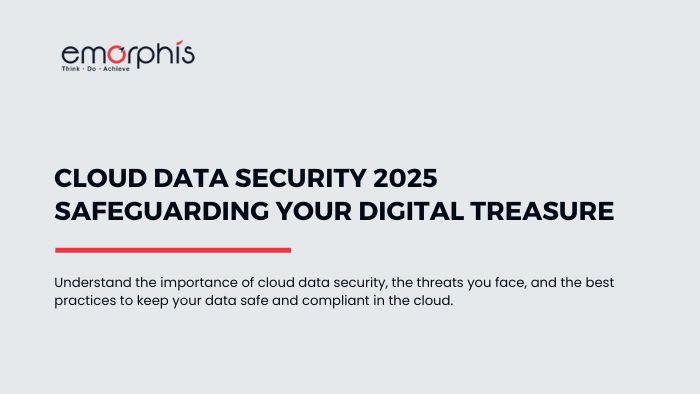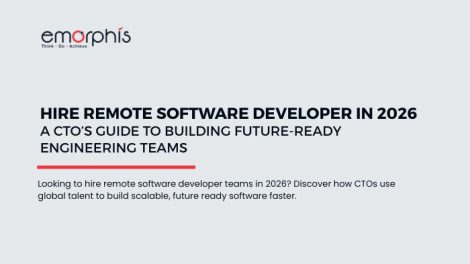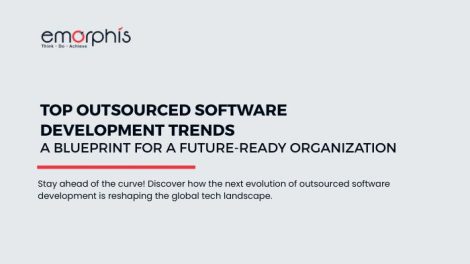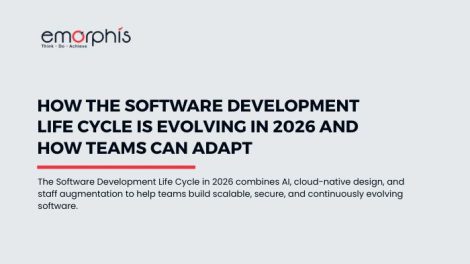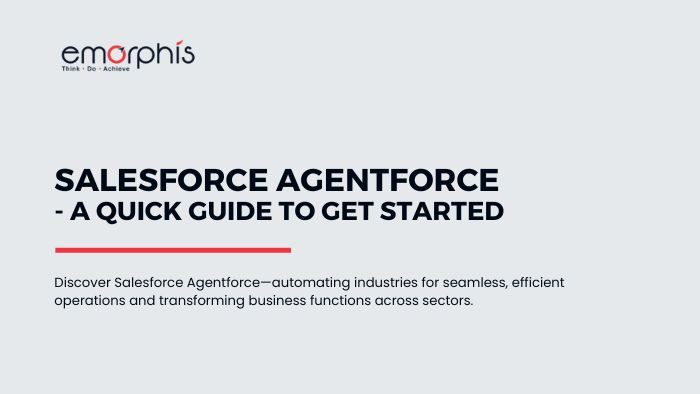Cloud data security remains a top priority for organizations, as evidenced by recent news and market research. A report by market.us states the global cloud security market is projected to grow significantly, reaching $148.3 billion by 2032. This represents a substantial increase from its current value of $20.5 billion in 2022, with an expected compound annual growth rate (CAGR) of 22.5% during this period. (report)

Recent news also highlights the growing importance of zero-trust security models, AI-powered threat detection, and cloud-native security solutions. As organizations move more data to the cloud, the demand for effective security measures is expected to remain high.
In today’s digital age, businesses and individuals alike rely heavily on cloud storage and services. With the convenience of accessing data from anywhere, the importance of Cloud Data Security has skyrocketed. As we increasingly depend on cloud solutions for storing sensitive information, it’s crucial to understand what Cloud Data Security entails, the threats it faces, and how to safeguard our data in the cloud.
What Is Cloud Data Security?
Cloud Data Security refers to the set of policies, controls, and technologies designed to protect data stored in the cloud. This encompasses various aspects, including securing access to data, encrypting data at rest and in transit, and ensuring compliance with regulatory standards. As organizations migrate to the cloud, it becomes a top priority to mitigate risks and protect sensitive information from unauthorized access and breaches.
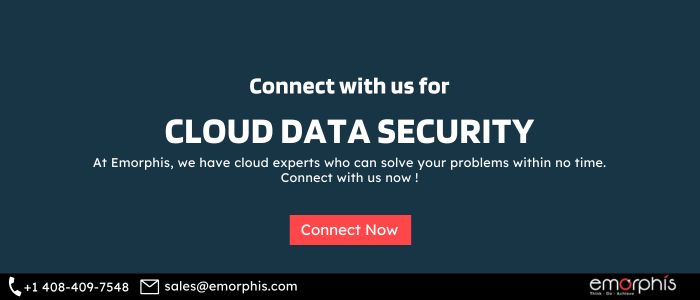
Understanding the landscape of cloud data security is crucial, especially as we dive deeper into the specific threats that organizations face today.
Types of Threats to Cloud Data Security
Understanding the various threats to Cloud Data Security is the first step in developing an effective security strategy. Here are some of the most common threats:
1. Data Breaches
Data breaches remain one of the most significant risks to Cloud Data Security. A breach can occur when unauthorized individuals gain access to sensitive data, resulting in potential financial and reputational damage. Organizations must implement strong access controls and continuous monitoring to protect against data breaches.
2. Insider Threats
Not all threats come from outside the organization. Insider threats can be just as damaging and are often more challenging to detect. Employees may intentionally or unintentionally compromise Cloud Data Security by mishandling sensitive data or falling victim to phishing attacks.
3. DDoS Attacks
Distributed Denial of Service (DDoS) attacks overwhelm cloud services with excessive traffic, rendering them unavailable. These attacks can disrupt business operations and compromise Cloud Data Security by exposing vulnerabilities during recovery efforts.
4. Malicious Attacks
Hackers continuously develop sophisticated methods to infiltrate cloud systems. Malware, ransomware, and other malicious attacks pose significant risks to Cloud Data Security. Organizations must stay updated on the latest threats and employ comprehensive security measures.
After recognizing the threats to cloud security, it’s crucial to explore the key components that form the backbone of effective cloud data security strategies.

Key Components of Cloud Data Security
To effectively protect data in the cloud, organizations must focus on several key components of Cloud Data Security:
1. Data Encryption
Data encryption is essential for Cloud Data Security. It ensures that sensitive data is transformed into unreadable formats, which can only be decrypted with the right key. This means that even if data is intercepted, it remains protected.
2. Access Control and Authentication
Implementing robust access control measures is crucial for Cloud Data Security. Organizations should enforce strict authentication protocols, including multi-factor authentication (MFA), to ensure that only authorized personnel can access sensitive information.
3. Identity and Access Management (IAM)
IAM systems help manage user identities and their access to cloud resources. By defining roles and permissions, organizations can enhance Cloud Data Security and minimize the risk of unauthorized access.
4. Secure APIs
APIs are essential for integrating different services in the cloud. However, they can also be potential attack vectors. Ensuring that APIs are secure and follow best practices is vital for maintaining Cloud Data Security.
With a solid grasp of the essential components, we can now discuss best practices that organizations can implement to enhance their cloud data security posture.
Best Practices for Cloud Data Security
To effectively safeguard data in the cloud, organizations should follow these best practices:
1. Regular Security Audits
Conducting regular security audits helps identify vulnerabilities and assess the effectiveness of existing security measures. These audits are essential for maintaining robust systems.
2. Multi-Factor Authentication (MFA)
Implementing MFA adds an extra layer of protection. By requiring users to provide two or more verification factors, organizations can significantly enhance Cloud Data Security.
3. Data Backup and Recovery Strategies
Data loss can occur due to various reasons, including accidental deletion or cyberattacks. Regularly backing up data and having a recovery plan in place is critical for ensuring the integrity of Data Security.
4. Security Information and Event Management (SIEM)
SIEM tools help organizations monitor security events in real-time. By aggregating and analyzing data from various sources, SIEM enhances Cloud Data Security by enabling quick responses to potential threats.
While best practices are vital, understanding regulatory compliance and standards is equally important in ensuring that cloud data security measures meet legal and industry requirements.

Regulatory Compliance and Standards
Compliance with regulatory standards is a vital aspect of Cloud Data Security. Organizations must adhere to regulations like GDPR, HIPAA, and PCI DSS, which dictate how data should be handled and protected. Failure to comply can lead to severe penalties and damage to an organization’s reputation.
Overview of GDPR, HIPAA, and PCI DSS
- GDPR (General Data Protection Regulation) emphasizes data protection and privacy for individuals within the European Union. Organizations must ensure that personal data is processed lawfully and transparently.
- HIPAA (Health Insurance Portability and Accountability Act) sets standards for protecting sensitive patient information in the healthcare sector. Compliance with HIPAA is critical for maintaining Cloud Data Security in healthcare organizations.
- PCI DSS (Payment Card Industry Data Security Standard) provides guidelines for securing credit card transactions and protecting cardholder data. Compliance is essential for businesses that handle payment information.
Armed with knowledge of compliance requirements, let’s turn our attention to the process of choosing the right cloud security provider to effectively safeguard your data.
Choosing the Right Cloud Security Provider
Selecting a reliable cloud security provider is crucial for enhancing Cloud Data Security. When evaluating providers, consider the following factors:
1. Evaluating Security Features
Assess the security features offered by potential providers. Look for advanced security measures, such as encryption, access controls, and threat detection capabilities.
2. Assessing Provider Certifications
Check whether the provider complies with industry standards and holds relevant certifications. Certifications like ISO 27001 indicate a commitment to maintaining high-security standards.
3. Service Level Agreements (SLAs)
Review the SLAs offered by cloud providers to ensure they meet your organization’s needs. The SLA should clearly outline the provider’s responsibilities regarding cloud data security.
After selecting a suitable provider, it’s important to stay informed about emerging trends in cloud data security that can further enhance protection against evolving threats.
Click to check our Cloud Operation Management Services
Emerging Trends in Cloud Data Security
As technology evolves, so do the threats and solutions related to Cloud Data Security. Here are some emerging trends to watch:
1. AI and Machine Learning in Security
Artificial Intelligence (AI) and Machine Learning (ML) are increasingly used to enhance Cloud Data Security. These technologies can analyze vast amounts of data to identify patterns and anomalies, enabling quicker threat detection and response.
2. Zero Trust Security Models
The Zero Trust security model operates on the principle of “never trust, always verify.” This approach enhances Cloud Data Security by requiring strict verification for every access request, regardless of the user’s location.
3. Cloud Security Posture Management (CSPM)
CSPM tools help organizations maintain compliance and identify misconfigurations in their cloud environments. By continuously monitoring cloud configurations, CSPM enhances overall Cloud Data Security.
With a comprehensive understanding of the current landscape, we can conclude by reflecting on the future of cloud data security and the ongoing efforts needed to protect sensitive information.
Further, find details on Healthcare Cybersecurity
Conclusion
As the reliance on cloud services continues to grow, so does the need for robust Cloud Data Security. By understanding the threats, implementing best practices, and choosing the right security measures, organizations can protect their data and maintain the trust of their clients. With the right strategies in place, the cloud can be a safe and efficient environment for managing sensitive information.

In conclusion, prioritizing Cloud Data Security is not just a technical necessity but a strategic imperative for any organization operating in the digital landscape. By staying vigilant and proactive, businesses can navigate the challenges of cloud security and harness the full potential of cloud computing.
Click to check details on Cloud Computing Services.
If you’re looking to enhance your organization’s cloud data security or tackle any challenges in healthcare software development, connecting with experts from Emorphis Technologies is a smart move. Our team is comprised of seasoned professionals who are well-versed in the latest technologies and industry best practices. By collaborating with Emorphis, you gain access to tailored solutions designed to meet your specific needs, whether it’s implementing robust cloud security measures, optimizing your healthcare applications, or ensuring compliance with regulatory standards. Don’t hesitate to reach out to us; together, we can navigate the complexities of technology and drive your projects to success. Connect with Emorphis Technologies today and empower your organization to thrive in the digital landscape!



